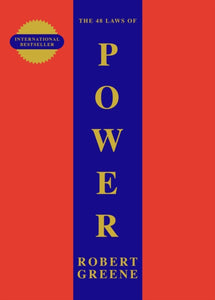Podrobnosti o izdelku
Poglej vseISBN
9781402097973Mladinska knjiga ID
399686Leto izida
2009Velikost (šxdxv)
150 × 200 × 10Status dobavljivosti
Na zalogi pri dobaviteljuJezik
ANGZaložnik
SPRINGER-VERLAG GmbHAvtor
MATHISOpis
Employs the concepts and reasoning methods of modern economic theory so as to gain a deeper understanding of legal problems. This book states that it is the role of the law to encourage market competition and, where the market fails because transaction costs are too high, to simulate the result of competitive markets.1 Introduction PART ONE: ECONOMIC FOUNDATIONS 2 Homo economicus A. Introduction B. The economic paradigm I. The scarcity of resources II. Methodological individualism III. The theorem of self-interest IV. The assumption of rationality V. Strict distinction between preferences and constraints VI. Economic man as a heuristic fiction C. Fundamental principles of economics I. The law of demand II. Maximization of utility and profit III. The market takes care of the optimum allocation of resources D. Models of utility and profit maximization I. Household maximization of utility II. Maximization of profit by the business firm 1. Perfect competition 2. Supply monopoly E. Critique I. Unrealistic assumptions II. The static nature of the analysis III. Reductionism F. Summary 3 Efficiency criteria A. Introduction B. Pareto efficiency I. The concept 1. The Pareto criterion 2. The Pareto optimum II. The Pareto optimum and competitive equilibrium III. Critique 1. The problem of initial endowment 2. External effects 3. The static nature of the analysis 4. The danger of mixing positive and normative theory C. The Kaldor-Hicks criterion I. The concept II. Comparison with the Pareto criterion III. Critique 1. Logical inconsistency 2. The measurement problem 3. The no-compensation problem 4. The accusation of collectivism 5. No guarantee of increased social utility 6. The issue of consensuality D. Summary 4 Economic Analysis of Law A. Introduction B. Concepts I. Transaction costs II. Property rights 1. Property rules 2. Liability rules C. The Coase Theorem I. The concept II. The reciprocal nature of harmful actions III. The absence of transaction costs 1. Negotiations ensure an efficient outcome 2. Negotiation as an alternative to state intervention 3. Critique a) The assumptions are unrealistic b) Wealth and endowment effects influence allocation c) Bargaining is not the same as competition IV. Taking account of transaction costs 1. The choice between different social arrangements 2. The crucial importance of law D. Applications of economic analysis of law I. The incentives of liability rules 1. Introduction 2. A model for minimizing the social costs of accidents 3. Explanation with illustrative example 4. Unilateral precautions by the victim a) No liability b) Strict liability 5. Unilateral precautions by the injurer a) No liability b) Strict liability 6. Implications 7. Bilateral precautions a) Liability for negligence b) The 'Hand rule' for determining the scale of negligence 8. Critique II. Efficient breach of contract 1. Introduction 2. Breach of contract in a case of double sale a) Compensation for the reliance loss (reliance damages) b) Compensation for the expected loss (expectation damages) 3. Critique III. Optimal punishment 1. Introduction 2. The rational delinquent 3. The optimal crime rate 4. Critique E. Summary PART TWO: PHILOSOPHICAL FOUNDATIONS 5 Adam Smith's Moral Philosophy A. Introduction B. Smith's theory of ethics I. Self-interest II. The forces which control self-interest 1. Sympathy and the impartial spectator 2. Social ethical norms 3. Positive law 4. Competition III. The virtues C. The invisible hand D. Critique I. The Adam Smith problem II. The impartial spectator III. Individual versus collective rationality 6 Jeremy Bentham's Utilitarianism A. Introduction B. Utilitarianism as a normative ethical theory I. Utilitarianism as a teleological theory II. The utility principle and the felicific calculus III. Utilitarianism depends on a theory of value IV. Forms of utilitarianism 1. Act and rule utilitarianism 2. Total and average utilitarianism 3. Positive and negative utilitarianism C. Critique I. The boundary problem II. The information problem III. The problem of quantification and utility comparison IV. The confusion of is and ought V. Responsibility for others' and one's own actions VI. Individual versus social welfare VII. The problem of distributive justice VIII. The problem of basic rights 7 John Rawls's theory of justice A. Introduction B. Justice as the first virtue of social institutions C. The thought experiment I. The original position II. Anthropological premisses III. The veil of ignorance IV. The maximin choice rule V. The four-stage sequence VI. The reflective equilibrium VII. The two principles of justice 1. The first principle of justice: the liberty principle 2. The second principle of justice: the difference principle D. Critique I. Anthropological premisses II. The veil of ignorance III. The maximin choice rule IV. The reflective equilibrium V. The monological model VI. Universalism VII. The liberty principle VIII. The difference principle PART THREE: WEALTH, EFFICIENCY AND JUSTICE 8 Richard Posner's theory of wealth maximization A. Introduction B. Overview C. Utilitarianism D. Wealth maximization as an alternative to utilitarianism I. Wealth maximization 1. Wealth 2. Explicit and implicit markets 3. Actual and hypothetical markets 4. Protestant virtues and the invisible hand 5. Consumer and producer surplus 6. Willingness to pay determines the allocation of resources 7. Kaldor-Hicks efficiency as the definitive criterion 8. Wealth maximization is already anchored in practice II. Comparison with utilitarianism 1. The boundary problem 2. The measurement problem 3. The problem of moral monstrousness 4. Utilitarianism as justification for state interventionism III. Application of wealth maximization to ethical questions 1. The death penalty 2. Right to privacy 3. Markets in babies and human organs 4. Liberty as wealth IV. Critique 1. Rationality of actors 2. Logical inconsistencies 3. Wealth maximization as an end in itself or an instrument? 4. Income distribution 5. The problem of inalienable rights E. Consensus theoretical justification of wealth maximization I. The squaring of the circle II. The concept of ex ante compensation III. Differences from Rawls's theory IV. Critique F. Pragmatic justification of wealth maximization I. Exclusivity claim abandoned II. Division of labour between the judiciary and the legislature III. Moral intuitions as the ultimate test IV. Moving back towards utilitarianism V. The constitution as a safety net VI. Retreat into pragmatism G. Summary 9 Justice and efficiency A. Introduction B. Justice I. Types of justice II. Distribution criteria 1. To all the same 2. To all according to their convictions 3. To all according to their rank 4. To all according to their legal entitlement 5. To all according to their needs 6. To all according to their merit C. Efficiency I. The concept II. Is efficiency a goal at all? D. Specific goal relations I. Justice in exchange and efficiency II. Corrective justice and efficiency III. Distributive justice and efficiency E. Separating justice and efficiency? F. Summary 10 Conclusions BIBLIOGRAPHY INDEX OF NAMES AND SUBJECTS
Pogosto kupljeno skupaj


Trda
Ostali so si ogledali tudi ...


Več kot pol milijona knjig
Največja ponudba slovenskih in tujih knjig na enem mestu.

Enostaven nakup
Do izbranega le z nekaj kliki na spletu ali v eni od več kot 50 knjigarn.
Strokoven nasvet
Pred nakupom nas pokličite za nasvet ali se oglasite v knjigarni.

Vse za šolo
Nagrajena izobraževalna gradiva in kakovostne potrebščine.

Celovita ponudba za dom in pisarno
Vrhunski izdelki priznanih blagovnih znamk.
Brezplačna dostava
Brezplačna dostava za vsa naročila nad 59 € (za šolske pakete nad 140 €)
Knjigarne
Zaloga
×Osveženo 26.03.2023 10:09
Slovenska cesta 29, 1000 Ljubljana
E-naslovSpletna knjigarna: info@emka.si, Mladinska knjiga Založba: info@mladinska-knjiga.si
Kontakt01 241 30 00
Brezplačna številka080 12 05
Prijava na e-novice
© 2025 Mladinska knjiga. Vse pravice pridržane.
- Ko izberete elemente, se celotna stran osveži.
- Odpre se v novem oknu.
















